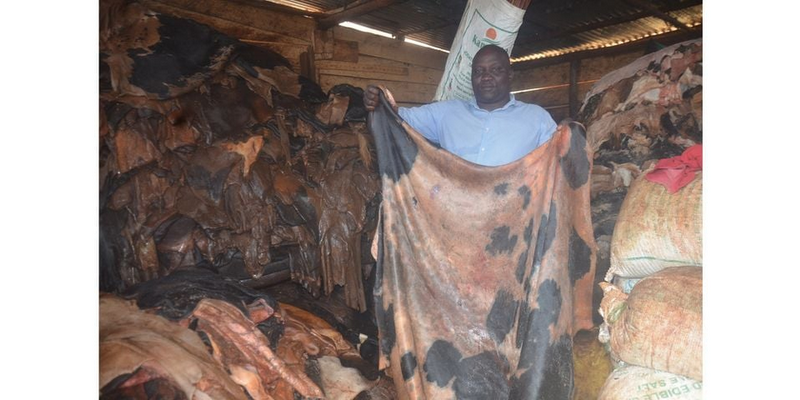Summary:
- Four leather factories in Jinja City have closed, leading to unemployment and economic repercussions. The closures were attributed to a lack of raw materials and reduced demand. The remaining leather factory is also at risk due to limited buyers.
Jinja City is facing economic repercussions as four leather factories have shut down, leaving numerous former employees unemployed. The affected factories include SWT Leather Industries on Mutibwa Road, Mehaka Leather Exim Smc Limited, Uganda Leather and Tannery Industries in Jinja, and Loyal Small Scale Industries on Nile Crescent Road.
Mr. Moses Mulondo, the head of membership and administration at the Uganda National Chamber of Commerce and Industry in Jinja, attributed the factories’ closures to insufficient raw materials. “These factories were operating below capacity due to a shortage in the supply of hides and skins, which couldn’t meet the demand,” he explained.
The collapse of these industries has had a profound impact on Jinja’s economy. “These factories used to employ many people, especially casual laborers. Their closure has resulted in widespread unemployment in Jinja City,” Mr. Mulondo added.
Let Us Build Your Online Success!
We are the experts in creating visually stunning and functional websites. With reliable hosting and exceptional customer support, we bring your vision to life. Join hundreds of happy clients who trust us!
Get Started Now
Ms. Sirina Kyakuwaire, the Deputy Speaker of Jinja City, pointed out that the factories’ closure has also affected revenue collection. “We used to generate taxes from these industries, and their shutdown has negatively impacted our revenue. Meanwhile, residents expect improvements in infrastructure, such as roads, street lighting, and cleanliness,” she expressed.
Only one leather factory, Skyfat, remains operational in Jinja City. Mr. Arafa Wambede, a hides and skins dealer, expressed concern over the potential consequences if Skyfat Tannery were to stop purchasing their products. “With the closure of the other industries, we will have nowhere to sell our hides and skins,” he emphasized.
Mr. Wambede further highlighted that low export volumes have contributed to a significant drop in prices over the past five years. The price per kilogram of hides and skins has plummeted from Shs3,000 to as low as Shs500. He noted that the market for wet-blue leather, which was previously exported, is no longer available, as Chinese buyers now predominantly use hides and skins for food production.
Mr. Ronald Mutabi Byarugaba, the General Secretary of Jinja City Abattoir, explained that price fluctuations have adversely affected their business. The price of cow skins has dropped from Shs3,500 to between Shs400 and Shs500, while goat hides have fallen from Shs10,000 to Shs1,500 and Shs2,000.
Mr. Chrizestom Kagolo, the chairperson of Jinja City Abattoir, attributed the price decline to the government ban on raw hide and skin exports. The restriction, allowing only the export of wet-blue leather, resulted in traders losing their market opportunities.
Traders in various regions, such as Kamuli Municipality and Katakwi, also face challenges due to the drop in prices and high taxation imposed by the government. These factors have hindered their ability to compete in the international market.
The closure of the leather factories and the subsequent decline in the leather industry in Jinja have had far-reaching consequences for the local economy, highlighting the need for strategies to revitalize the sector and stimulate growth.

